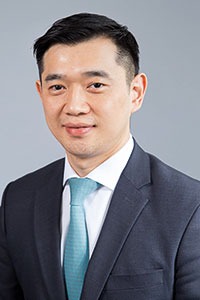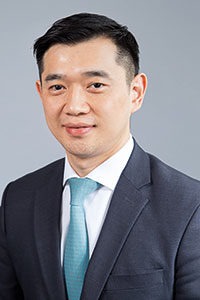< Read Before: The Future of Hospitality Employment in the Middle East

Read After: Bridging the Gap Between Education and the Workforce >
Wei-Cheng Chen, senior consultant at Lausanne Hospitality Consulting SA, responsible for development of hospitality institutions worldwide as a senior consultant at Lausanne Hospitality Consulting SA, tackles one of the pressing issues that will be addressed at the Window to the Future 2018 think-tank summit in April.
We are experiencing profound changes of the digital age, as technology slowly replaces human roles, and big data analysis, artificial intelligence and smart living create new paradigms and dynamics. Yet, education often remains unchanged, despite these advancements. In the near future, humans will not be able to compete with technology when it comes to knowledge.
During the World Economic Forum 2018, Jack Ma, founder of Alibaba Group, China’s e-commerce giant, shared his concerns about today’s education. “If we do not change the way we teach, 30 years from now, we’re going to be in trouble,” was his warning. He added that the “knowledge-based approach of 200 years ago” would “fail our kids”, who would never be able to compete with machines. Children should be taught “soft skills,” he said, like “independent thinking, values and team-work.”
Soft skills is a simple phrase to describe a complex system of behaviors and habits. Examples include common sense, empathy, confidence, teamwork, honesty, the ability to see things from different perspectives, the ability to compromise, negotiate and persuade, communicate, network and think critically…. and the list goes on. While all educators know the importance of assisting students in developing these skills, little in the way of effort or results are being observed.
Schools should start changing the way they understand and design education. Following are three suggestive actions to implement and start redesigning your school:
Reduce knowledge, focus on experience
Education should be considered as an experience-based realm rather than a knowledge-based one. Students are transformed by the university experience during their three-to-four years of studies. However, traditional institutions still believe that students are looking for knowledge at university, thus placing knowledge transfer at the core of the institution. While this is still crucial, educators fail to harness knowledge transfer in assisting students to develop the necessary soft skills for the real workplace. Knowledge is an enabler of transformation, but it’s crucial to start thinking about what type of experience you want your students to acquire so that they are transformed and thus, better ready for the industry. Transform them through the experience of team work, competition, presentation, activities, negotiation, culture and failure, to name just a few ways. With the digital advancement, we can think of introducing virtual reality (VR) in classroom environments, where students can experience a scenario and develop the soft skills required. Pertinent examples include creating a conflict where a customer complains about an issue or situation and the students need to propose a solution.
Change the mindset of the faculty
Doubtless, faculty plays a key role in educational institutions, but the challenge is that most misinterpret their role, especially in today’s world. Knowledge transfer should be considered as a concept primarily from the past, since we can obtain information by ‘googling’ today. Classrooms must be used to create experiences for the students, with knowledge as a conductor rather than the ultimate goal. Therefore, faculty should become knowledge facilitators and experience engineers, assisting students in analyzing and interpreting information, inspiring them, stimulating their curiosity, as well as staging the right learning setting for their studies. For this, it is necessary to equip your faculty with the right tools; thus, training them with the new mindset of knowledge facilitation, such as the Lausanne Qualified Learning Facilitator’s Program, is essential.
Listen to the industry
What are the attributes that employers are looking for when hiring graduates? And why it is necessary for institutions to know what they are? Graduates are the output of an institution and if they are in high demand from the industry, it is an indication of success. With the advancement in technology, employers are looking for intangible attributes from graduates, rather than technical know-how, with customer-centric traits one of their most common demands. Thus, having a close relationship and good communication with the industry, deciphering their needs and wants for future new hires must be taken as one of the core components of an institution. Having an industry-composed advisory board, inviting practitioners to your school and co-delivering a course are some of the most common practices. Additionally, organizing a think-tank of practitioners, where employers will be able to share their requirements for hiring graduates, is highly useful.

Wei-Cheng Chen, senior consultant at Lausanne Hospitality Consulting SA
About Lausanne Hospitality Consulting (LHC)
LHC is the Swiss knowledge development and management advisory company of Ecole hôtelière de Lausanne (EHL) and the Swiss Hotel Association (hotelleriesuisse). ‘Window to the Future’ is a Swiss knowledge initiative of LHC and EHL, with a mission to identify, assess and anticipate changes in the future of the hospitality industry. The think-tank summit, taking place at EHL on April 30, 2018, will feature key-note speeches with international influencers, panel discussions with experts and leaders from the hospitality industry, and lively debates with all summit participants.













